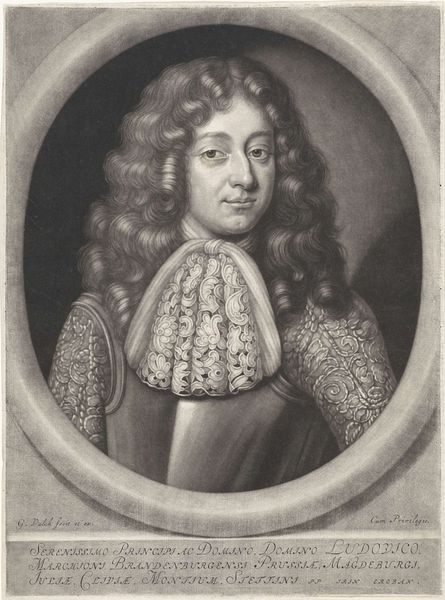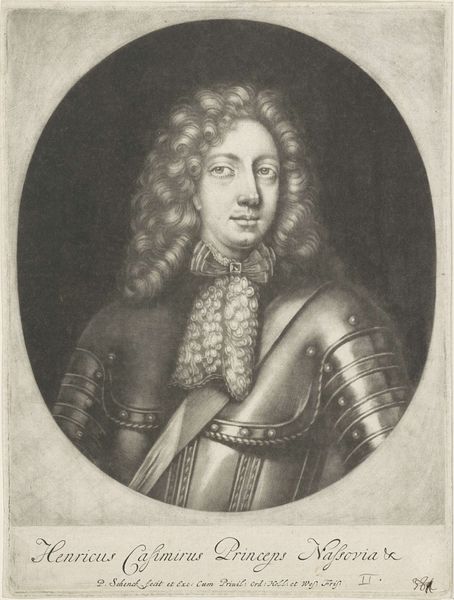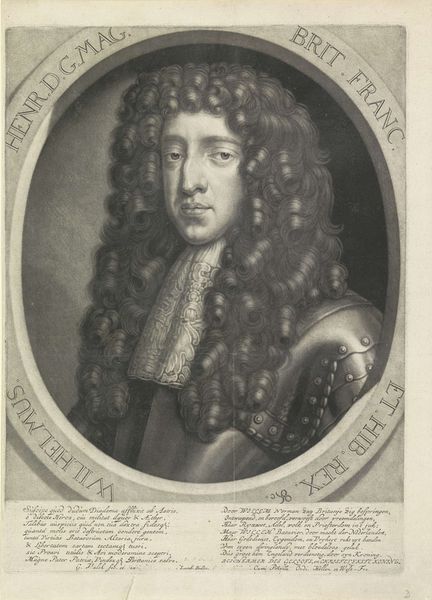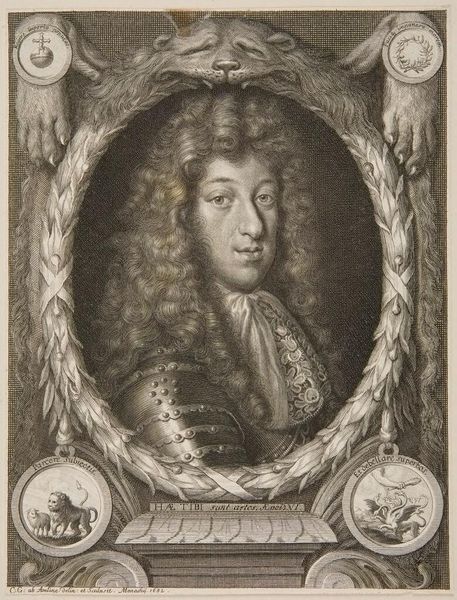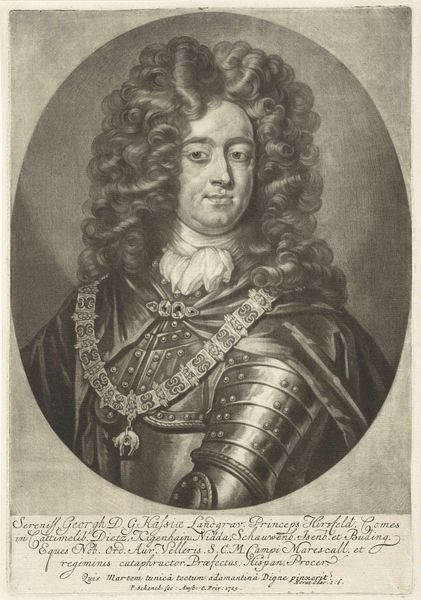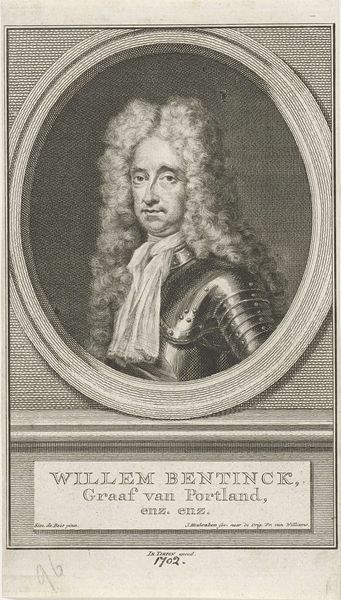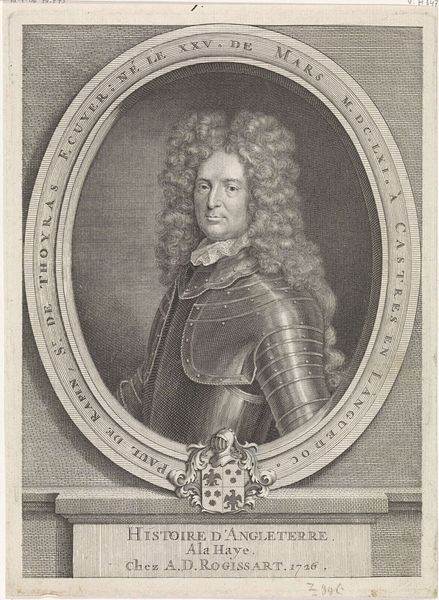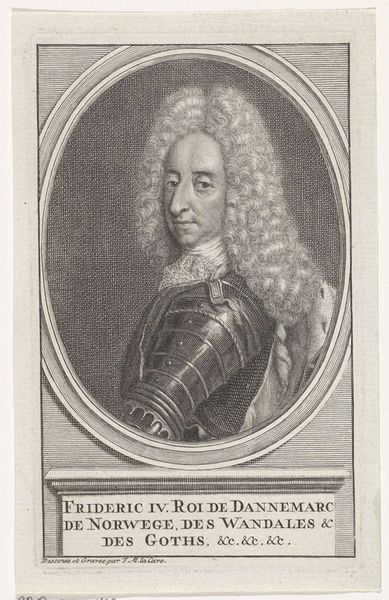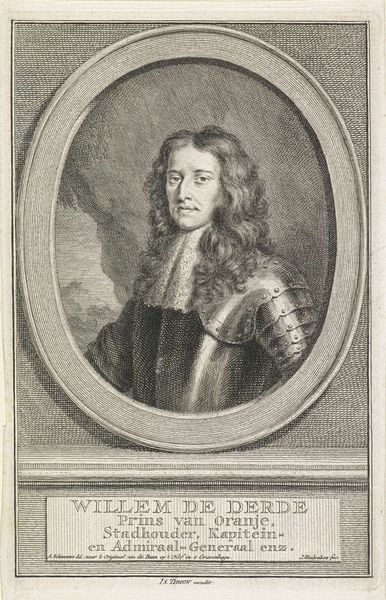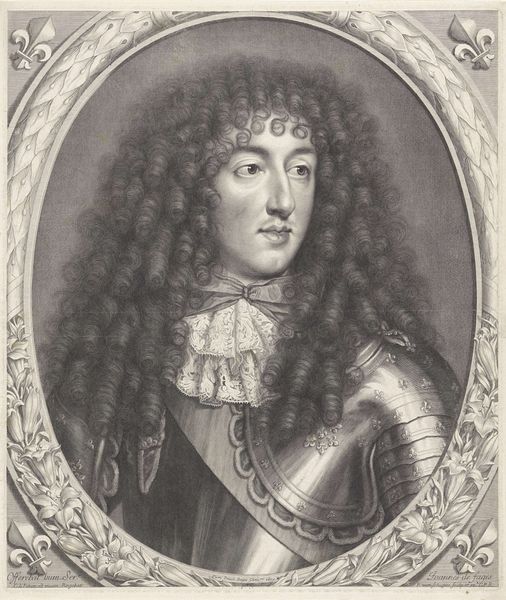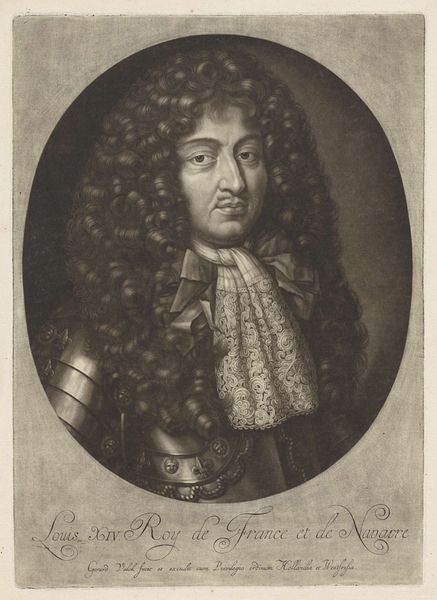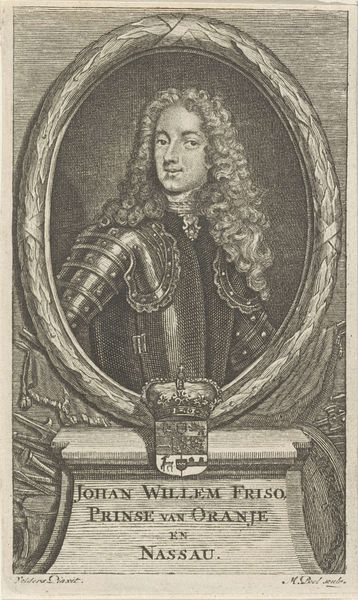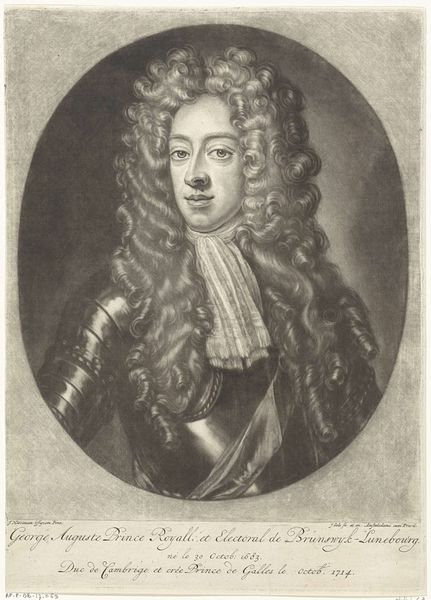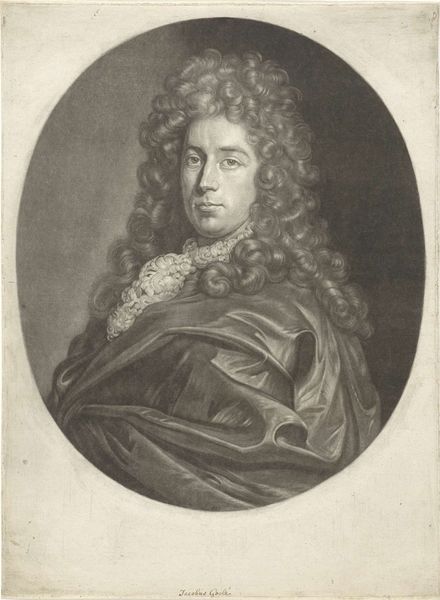
metal, engraving
#
portrait
#
character portrait
#
baroque
#
metal
#
historical photography
#
history-painting
#
engraving
Dimensions: height 348 mm, width 255 mm
Copyright: Rijks Museum: Open Domain
Editor: This is a portrait of Frederick I of Brandenburg, dating sometime between 1662 and 1726, engraved on metal by Gerard Valck. The subject’s elaborate wig and lace cravat are quite striking. What sort of visual statements can we decipher in such features? Curator: The details are indeed powerful signifiers. Beyond mere vanity, the wig, for example, in the late 17th and early 18th centuries, became synonymous with authority, mimicking natural hair yet amplified for symbolic weight. Notice how its sheer volume contrasts with his otherwise gentle face, creating a tension between approachable humanity and overwhelming power. The lace too, is important. It reflects wealth and artistry, doesn't it? Editor: Yes, but it almost feels… constricting. Is that just me? Curator: Not at all. Lace could indeed be seen as a delicate prison. In conjunction with his rigid armor, does the finery perhaps indicate an entrapment within the expectations and demands of his position? Valck is showing us that symbolism need not be singular and can reflect the push and pull of individual versus the public role, ambition, and perceived beauty. Editor: I hadn’t thought of the wig and lace as signifying constraint, but now it's apparent how those period fashions acted as much more than mere adornment! Curator: Exactly. By reading the visual symbols encoded within the piece, we find cultural memory layered with both psychological and historical import. It urges us to think deeply about continuity of symbolism through the ages and also how our reading of those symbols can change as cultural context changes.
Comments
No comments
Be the first to comment and join the conversation on the ultimate creative platform.
